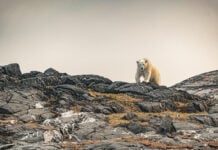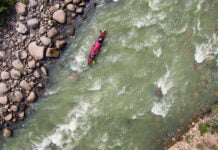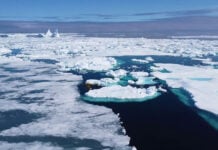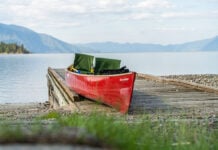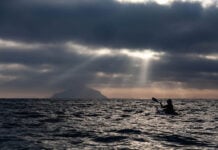It took Darcy Gaechter 148 days to paddle the Amazon River—but it took her six years to write Amazon Woman, the story of how she became the first woman to kayak the 4,259-mile waterway from source to sea.
Yet when her appearance to promote the book on The Today Show was canceled at the last-minute due to COVID-19, Gaechter took the news in stride.
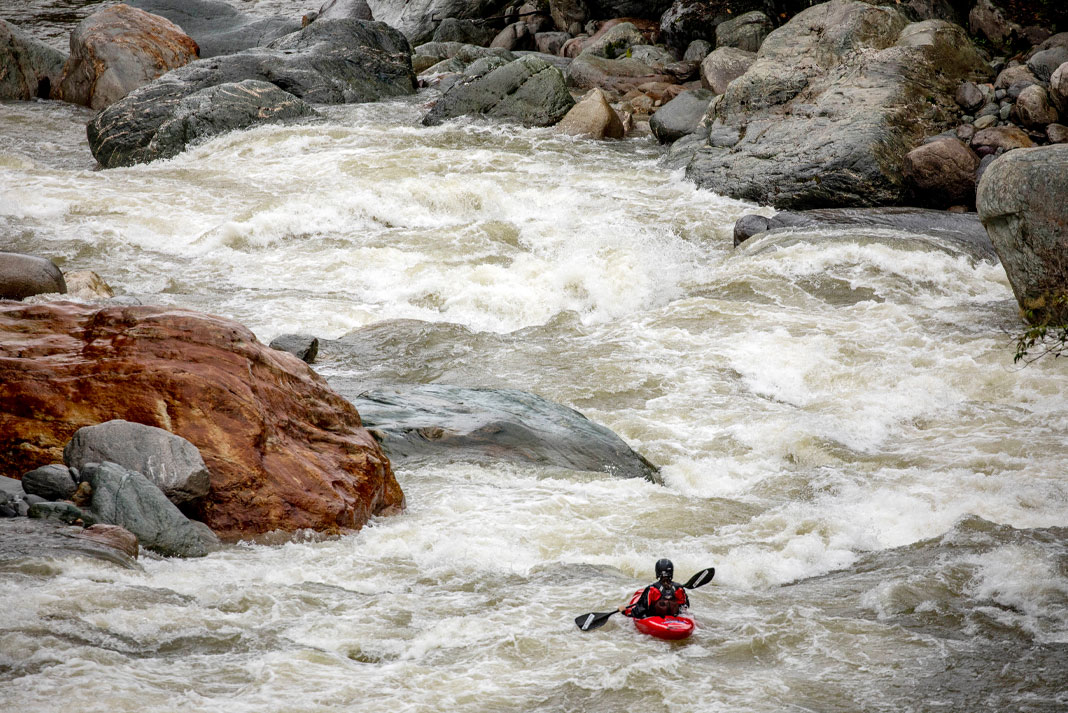
“On the Amazon, I learned little changes in my mindset could make such a difference,” says Gaechter, the co-owner of Small World Adventures, a whitewater tour company in Ecuador. “Rather than feeling bummed-out, I thought, ‘Finding different ways to market the book will be something to put my energy into.’”
Not doing the expected is perhaps the personality trait defining Gaechter best—and is at the heart of the message she shares in Amazon Woman: Facing Fears, Chasing Dreams, and a Quest to Kayak the World’s Largest River from Source to Sea.
Released in March 2020, the “part-memoir, part-feminist manifesto” chronicles the journey she made with partner Don Beveridge and client David Midgley (“Midge”) in 2013—and their run-ins with illegal loggers, rebels and narcotics traffickers along the way.
Why did you want to write a book?
My whole life, people have told me that I can’t or shouldn’t do things. For example, I wanted to be a raft guide and a kayaker, even though I’m a girl and really little.
Instead of listening, something in me gets angry and I want to prove them wrong. I often see other women in my position listen to the noise of people telling them they can’t do this or they shouldn’t do that. A big motivation for me was to share this story that you can overcome.
What advice would you give other adventurous women?
Before my first big water trip, I read an article that said, “Women aren’t suited to run class V big water because they’re just not strong enough.” In any sport or adventure women try to undertake, there’s feedback like that, which gets burned on the consciousness. It surfaces at very inopportune times, like when you’re trying to focus on a hard rapid.
We need to focus on the mental side of training to make our subconsciousness forget a lifetime of messaging. We need to focus on the things we know will help us succeed, like our experience, training and state of mind.
When did you struggle to put mind over matter?
On the river, Don, Midge and I were good at not thinking about finishing and all the things we wanted. Why bother torturing ourselves when we’re not going to have it for so long?
Around day 100, the flatwater came and I began to lose my mindset. I was starting to think about going skiing or eating a salad. I had two weeks of mental anguish before I got my shit together again to be okay with where I was.
Where do you want to go next?
When we got back from the Amazon trip, Don and I were motivated to go on more whitewater journeys because there was so much flatwater involved in the Amazon.
I loved having life boiled down to such a simple existence and a simple goal. I want to do another trip where I can check out of normal life for an extended period again. We’re planning to paddle the Sacred Headwaters plateau in northern British Columbia and do the source-to-sea on the Skeena, Nass and Stikine rivers.
Who do you hope reads your book?
The book has been popular with non-kayakers and late-teenage women. I’ve been happy about both of those things. If I can help just one person that’s listening, it would be worth it. I hope it will encourage other people to figure out their passion and chase it—no matter what feedback they get from the world.
This article was first published in Paddling Magazine Issue 62. Subscribe to Paddling Magazine’s print and digital editions here, or browse the archives here.
“If I can help just one person that’s listening, it would be worth it,” says Darcy Gaechter. | Photo: Matt Power



